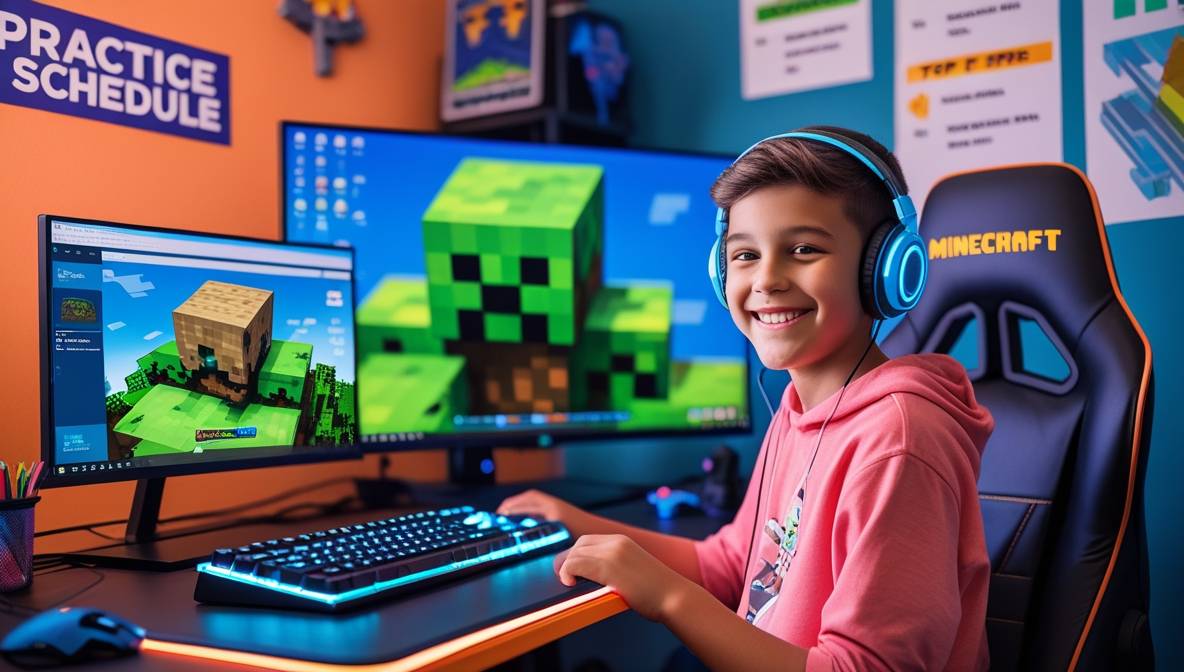Starting your gaming journey? VipGame24 breaks down essential strategies to help you level up faster, avoid common mistakes, and enjoy every session. From choosing your first game to staying healthy, these tips are your cheat code to success.
1. Choose Games That Match Your Interests
Gaming offers endless genres, but not all will click with you. Start by exploring:
| Genre | Examples | Best For |
|---|---|---|
| Action/Adventure | The Legend of Zelda | Fast-paced exploration |
| RPG | Elden Ring | Story-driven character growth |
| Simulation | The Sims 4 | Creative, relaxed gameplay |
| Strategy | Civilization VI | Critical thinking |
Pro Tip: Watch Twitch streams or YouTube gameplay videos before buying. Sites like Steam offer refunds within 2 hours if a game isn’t your style.
Need recommendations? Check our Best Games List.
2. Master Controls Gradually
Every game has unique mechanics. Avoid overwhelm by:
- Completing tutorials: Never skip them—they teach core skills.
- Customizing controls: Swap buttons in settings for comfort.
- Practicing offline: Use single-player modes to build muscle memory.
Example: In Fortnite, practice building in “Creative Mode” before jumping into Battle Royale.
For setup guides, visit Gaming Tips.
3. Embrace Patience – Progress Takes Time
New gamers often quit after early losses. Stay motivated by:
- Setting micro-goals (e.g., “Learn 2 combos today”).
- Tracking progress with apps like Mobalytics.
- Celebrating small wins (first headshot, completing a raid).
Fact: Pro gamers average 10,000+ hours of practice. Start slow!
Struggling? Read Avoiding Gaming Burnout.
4. Leverage Online Communities
Join platforms to accelerate learning:
| Platform | Use Case |
|---|---|
| Strategy guides (r/gaming) | |
| Discord | Real-time coaching |
| YouTube | Tutorials (e.g., RadBrad) |
Pro Tip: Search “[Game Name] + beginner guide” for tailored advice.
Join our Esports Community for exclusive tips.
5. Optimize Your Gaming Setup
A proper setup enhances performance:
- Hardware: Use wired internet for lower latency.
- Accessories: Start with a budget gaming mouse.
- Ergonomics: Adjust chair height to keep feet flat and screen at eye level.
Avoid: Gaming on couches—it strains your neck and wrists.
6. Schedule Focused Practice Sessions
Structured practice > mindless grinding. Use this template:
| Time | Activity | Goal |
|---|---|---|
| 0-10 mins | Warm-up (aim trainers) | Improve accuracy |
| 10-30 mins | Skill drills (e.g., recoil control) | Master one mechanic |
| 30-60 mins | Real matches | Apply skills under pressure |
Tool: Try KovaaK’s for FPS aim training.
7. Prioritize Physical & Mental Health
Gaming marathons can harm your health. Follow the 20-8-2 rule:
- Every 20 minutes, look 20 feet away for 20 seconds.
- Stand up for 8 minutes every hour.
- Take 2-hour breaks after long sessions.
Hydration Hack: Keep a water bottle at your desk—sip 250ml hourly.
For wellness tips, visit Health & Gaming.
8. Analyze Your Gameplay
Record sessions using OBS Studio or console built-in tools. Review to:
- Spot positioning errors.
- Identify missed opportunities.
- Compare your playstyle to pros.
Pro Tip: Share clips on Reddit for constructive feedback.
9. Learn Gaming Terminology
Confused by terms like “DPS,” “aggro,” or “respawn”? Bookmark glossaries:
Test Yourself: Take Quizly’s Gaming Quiz.
10. Balance Gaming with Real Life
Set boundaries to avoid addiction:
- Use app limiters like StayFocusd to cap playtime.
- Schedule gaming around work/study.
- Swap 1 hour of gaming daily for exercise (e.g., walks, yoga).
Success Story: Ninja (top streamer) meditates daily to stay focused.
Level Up Your Journey with VipGame24
Gaming is a marathon, not a sprint. Apply these tips, stay consistent, and watch your skills soar. For more guides, explore:

